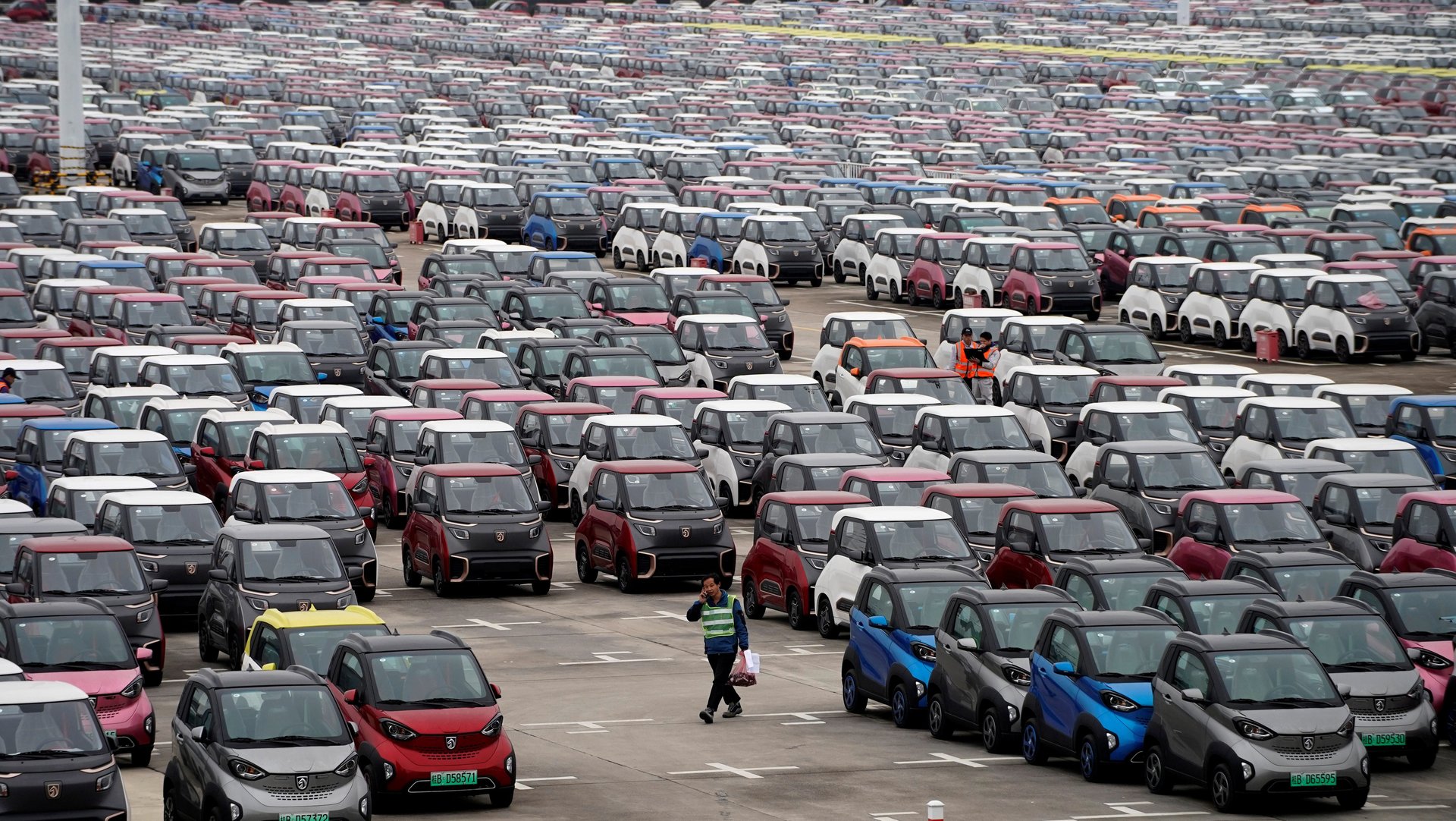China paralyzed its auto market by fast-tracking stricter car pollution rules
China’s latest attempt to clean up car pollution is throwing the auto industry into a tailspin, at a time when sales are slowing in the world’s largest auto market.


China’s latest attempt to clean up car pollution is throwing the auto industry into a tailspin, at a time when sales are slowing in the world’s largest auto market.
Starting Monday (July 1), 17 Chinese cities and provinces implemented an emission standard which requires cars to have better filtering systems for particulate matters and for trapping exhaust gases, state media outlet Xinhua (link in Chinese) reported. The move is the sixth stage of an emission standard rolled out in 2001 by Beijing in a bid to push the country’s auto industry to catch up with Europe’s.
The government had set a deadline for cars nationwide to meet the sixth stage a year from now (link in Chinese), but has also urged major cities and provinces, especially those with high car-sales, to implement the policy ahead of the deadline.
That push, which began in the southern island province of Hainan in November, has thrown car dealerships into chaos. More than 70% of 500 dealerships surveyed in 28 cities and provinces said they couldn’t clear their inventory of cars with the old emission standard, according to China Dealers Chamber of Commerce (link in Chinese), a Beijing-based industry group.
“No local government wants second-hand cars or old-generation cars flooding into their cities or provinces,” said Cui Dongshu, secretary of the China Passenger Car Association which tracks monthly sales of the vehicles. “Local government doesn’t care about the life and death of the companies or dealerships.”
Local dealerships have to clear their inventory quickly because the emission standard is closely linked to China’s car plate licensing system, which effectively limits the number of cars allowed in a city. In Guangzhou, for example, cars with the old emission standard won’t be able to register with a local plate or transfer them into the city after July 1. Cars without local licenses are subjected to a number of rules, including limited travel time.
In one case, a Shanghai-based franchisee of Sino-French joint venture Dongfeng Peugeot was offering a free compact car (link in Chinese) for customers who bought a sport utility vehicle in May, Beijing Business Today reported.
Dealers from provinces yet to implement the rules are also under pressure. A dealer in southern Fujian province told Quartz that he lost 10,000 yuan ($1,450) for every car he sold last month made by Sino-Japanese joint venture GAC Mitsubishi Motors. The dealer, who requested anonymity, said that Chinese carmakers would suffer more from the new rules because foreign brands such as Audi and BMW have already rolled out models compatible with the new emissions standard with their Chinese joint-venture partners, and their higher price tags means they’re able to better absorb the effects of any price adjustments.